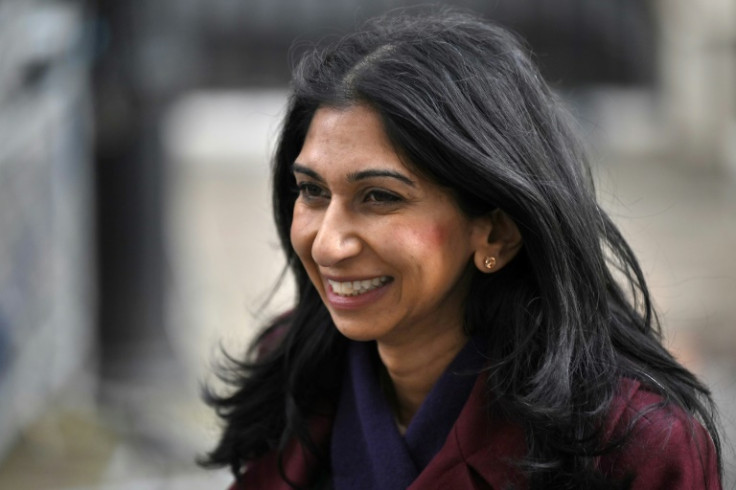Braverman Suggests Crackdown On Pro-Arab Chants After Sunak Vows Accountability for UK Supporters of Hamas
Braverman is calling for criminal action to be taken against UK supporters of Hamas as part of a broader strategy to bolster national security and safeguard against extremist ideologies.

In a letter to chief constables in England and Wales, Home Secretary Suella Braverman is advocating for the act of waving a Palestinian flag or singing a chant advocating freedom for Arabs in the region to become a criminal offence.
This letter comes after Prime Minister Rishi Sunak pledged to hold accountable individuals supporting Hamas in the United Kingdom, signalling a renewed effort to combat extremism and terrorism financing within the country.
Sunak's announcement came as part of a broader strategy to bolster national security and safeguard against extremist ideologies.
In her letter, Braverman said: "It is not just explicit pro-Hamas symbols and chants that are cause for concern. I would encourage police to consider whether chants such as: 'From the river to the sea, Palestine will be free' should be understood as an expression of a violent desire to see Israel erased from the world and whether its use in certain contexts may amount to a racially aggravated section 5 public order offence.
"I would encourage police to give similar consideration to the presence of symbols such as swastikas at anti-Israel demonstrations. Context is crucial. Behaviours that are legitimate in some circumstances, for example, the waving of a Palestinian flag, may not be legitimate such as when intended to glorify acts of terrorism."
She continued: "Nor is it acceptable to drive through Jewish neighbourhoods, or single out Jewish members of the public, to aggressively chant or wave pro-Palestinian symbols at. Where harassment is identified, I would encourage the police to take swift and appropriate enforcement action.
"I encourage all chief officers to ensure that any protests which could exacerbate community tensions by way of offensive placards, chants, or behaviours that could be construed as incitement or harassment, have a strong police presence to ensure perpetrators are appropriately dealt with and that communities feel protected."
In response to the letter, human rights barrister Shami Chakrabarti said: "The letter had been so readily press-released suggests that the intervention is at best virtue signalling and at worst seeking to compromise operational independence."
Chakrabarti added: "Police chiefs know their powers and duties. Anxious and vulnerable minority communities are not made safer by the politicisation of policing in difficult and dangerous times."
Sunak and Braverman emphasise the importance of safeguarding the UK against threats posed by extremist groups, including Hamas, the Palestinian militant organisation that has been designated as a terrorist entity by multiple countries, including the United States and the European Union.
There is a need to enhance intelligence efforts, work closely with law enforcement agencies, and improve legislation to make it easier to prosecute individuals found to be supporting or enabling organizations like Hamas.
One of the key challenges in this endeavour is distinguishing between legitimate forms of support for Palestinian causes and those activities that directly or indirectly fund terrorism. Sunak acknowledged this challenge, stating that the government would take a measured approach and ensure that actions are taken within the law and human rights boundaries.
Sunak's announcement follows the UK government's Counter-Terrorism and Sentencing Bill, which seeks to strengthen the legal framework for prosecuting terrorists and their enablers.
UK security services have long been monitoring individuals and entities suspected of supporting Hamas, but Sunak's pledge indicates a renewed and more focused effort in combating such activities. The United Kingdom, like many Western nations, has been committed to tackling extremism and terrorism financing, with the ultimate goal of maintaining national security and international stability.
As the government proceeds with its efforts to hold individuals supporting Hamas to account, the debate over the balance between national security and civil liberties is expected to continue, drawing attention to the complexities and challenges of combating terrorism financing in a democratic society.
© Copyright IBTimes 2025. All rights reserved.






















